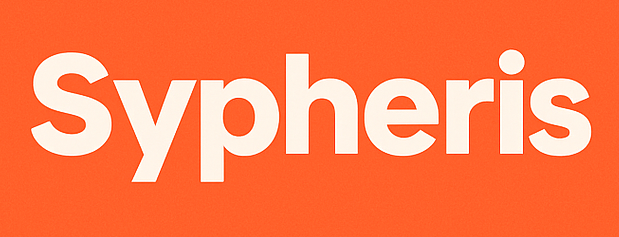The journey from lecture halls to a fulfilling career has always been daunting. In the past, career planning involved a mix of guidance counselor meetings, lengthy personality tests, and endless scrolling through job boards. Today, however, you have a powerful new ally in your corner: Artificial Intelligence. For US students and young adults, AI is no longer a futuristic buzzword; it’s a practical, accessible co-pilot ready to help you navigate the complexities of the modern job market. The era of generic career advice is over, and the age of personalized, data-driven career planning 2025 is here.
So, what makes AI so transformative for career development? It’s all about personalization at scale. AI algorithms can analyze your unique skills, interests, and experiences to identify career paths you may have never considered. They can sift through millions of data points on market trends to show you which industries are growing and what skills are in demand. This is a game-changer for a generation that values authenticity and wants to find a career that truly aligns with their passions and values. The best part? Many of these powerful tools are now free and specifically designed to be student-friendly.
In this guide, we’ve identified the best AI career tools for US students, focusing on platforms that are free to use, highly intuitive, and offer actionable insights. We’ll explore how these tools can help you from the initial stages of self-discovery to the final steps of landing your dream job. Let’s dive in and explore how you can harness the power of AI to build a future you’re excited about.
Top 5 Free AI-Powered Career Tools
We’ve scoured the web to find the most effective and accessible AI tools that can give you a real edge. These platforms go beyond simple job matching, offering deep insights into your personality, skills, and potential career trajectories.
1. CareerExplorer by Sokanu
CareerExplorer is one of the most comprehensive and respected career assessment platforms available, using machine learning and psychometrics to guide your exploration. It’s less of a quick quiz and more of a deep dive into who you are.
- How It Works: The platform’s core is its in-depth career test, which evaluates your interests, personality, work style, and values across more than 140 traits. The AI then compares your unique profile against its vast database of careers and professionals to find the best matches. It doesn’t just tell you what careers fit; it explains why they fit, breaking down the alignment by personality type, interests, and more.
- Step-by-Step Guide:
- Take the Test: Set aside about 30 minutes to complete the assessment thoughtfully. Be honest with your answers for the most accurate results.
- Explore Your Top Matches: The AI will generate a list of career matches, each with a match score. Click into your top matches to see detailed information, including day-in-the-life descriptions, salary expectations in the US, and future job outlook.
- Dive into Degree Pathways: A standout feature for students is the “Degrees” tab. CareerExplorer will show you what majors and degrees are most common for professionals in your matched careers, helping you align your education with your goals.
- Refine and Re-evaluate: As you gain new experiences, you can retake parts of the assessment to see how your career matches evolve.
2. LinkedIn’s AI-Powered Features
While LinkedIn itself isn’t new, its integration of sophisticated AI has transformed it from a simple networking site into one of the best AI career tools USA. Its AI works silently in the background to provide personalized recommendations and insights.
- How It Works: LinkedIn’s AI analyzes your profile—your skills, education, experience, and even the content you engage with—to act as a career coach. It powers features like job recommendations, skill suggestions, and interview preparation tools.
- Step-by-Step Guide:
- Optimize Your Profile: The AI needs data. Make sure your LinkedIn profile is detailed and up-to-date. Use the “Skills” section and have your connections endorse you. The more information you provide, the better the AI’s recommendations will be.
- Use the “Interview Prep” Tool: Search for a specific job title (e.g., “Marketing Analyst”) and navigate to the interview prep section. The AI will provide you with common interview questions for that role and allow you to record your answers for instant feedback on your pacing, use of filler words, and more.
- Follow “Career Explorer”: LinkedIn has a feature that shows you career paths based on your skills. It can visualize a career trajectory, showing you the roles people typically hold before and after a certain position, helping you plan your next steps.
- Leverage AI-Powered Job Alerts: When you search for jobs, the AI learns your preferences. Be specific in your searches and save them. The AI will then send you highly relevant job openings that match your profile and search history.
3. Careerflow.ai
Careerflow is a powerful, all-in-one career management platform with a suite of AI tools designed to streamline every aspect of the job search. Its free tier offers immense value for students.
- How It Works: Careerflow uses AI to optimize your application materials and job search strategy. Its standout features include an AI Resume Builder, LinkedIn Optimizer, and an Application Tracker, all housed within a single dashboard.
- Step-by-Step Guide:
- Build or Score Your Resume: Upload your existing resume or build one from scratch. The AI will score it based on ATS (Applicant Tracking System) compatibility and provide actionable suggestions, such as adding specific keywords from a job description.
- Optimize Your LinkedIn Profile: Use the Chrome extension to get real-time feedback on your LinkedIn profile. The AI will suggest improvements to your headline, summary, and experience sections to make you more visible to recruiters.
- Track Your Applications: Instead of using a messy spreadsheet, use the built-in Job Tracker. It helps you stay organized by keeping all your applications, contacts, and interview dates in one place, which is crucial for a proactive job search.
- Use the AI Cover Letter Generator: While you should always personalize it, the AI can generate a strong first draft of a cover letter tailored to a specific job description, saving you significant time.
4. Google’s Interview Warmup
Developed by Google, Interview Warmup is a simple but incredibly effective AI tool that helps you practice for job interviews. It’s like having a friendly, patient mock interviewer available 24/7.
- How It Works: You choose a field (like Data Analytics, Project Management, or General), and the AI asks you common behavioral, situational, and technical questions related to that field. It uses voice-to-text to transcribe your answers in real time.
- Step-by-Step Guide:
- Select Your Field: Choose the job category that best aligns with the roles you’re applying for.
- Practice Answering Questions: Speak your answers as if you were in a real interview. The tool will transcribe everything you say.
- Review Your Transcripts: This is the most valuable part. Read through your transcribed answers. Did you ramble? Did you use weak language? Were your answers structured and clear?
- Identify Talking Points: The AI will also analyze your answers and highlight key terms related to your experience, skills, and goals. This helps you see what an interviewer might pick up on and allows you to refine your messaging.
5. Forage (Virtual Work Experience Programs)
While not a traditional assessment tool, Forage uses AI to connect students with free, bite-sized “virtual work experience” programs created by leading US companies like JPMorgan Chase, BCG, and Accenture.
- How It Works: Forage provides simulated tasks that mirror the real-world work done at top companies. You work through modules at your own pace, and AI helps guide you through the process and provides model examples to compare your work against.
- Step-by-Step Guide:
- Browse Company Programs: Explore programs in fields that interest you, from investment banking to software engineering. There is no application process; you can start immediately.
- Complete the Tasks: Engage with the simulated projects. You might be asked to analyze data for a consulting case or draft a client email for a law firm. These tasks take about 5-6 hours to complete.
- Gain Real-World Skills: Upon completion, you earn a certificate that you can add directly to your LinkedIn profile and resume. This provides tangible proof of your interest and initiative.
- Get Recruited: Companies actively use Forage to identify promising talent. Completing a program can get you on the radar of recruiters and may even lead to exclusive internship or job opportunities.
Tips for an AI-Powered Career Strategy
Using these tools is a great start, but to truly maximize your potential, you need to integrate them into a broader career development plan. Here are some essential tips for AI career planning USA.
- Use AI as a Co-pilot, Not an Autopilot: AI tools provide incredible insights and suggestions, but they don’t know your whole story. They can’t capture your unique ambitions, your personality, or your gut feelings. Use the career paths suggested by CareerExplorer as a starting point for your own research. Use the resume keywords generated by Careerflow, but weave them into your own authentic narrative. Your human judgment and personal touch are irreplaceable.
- Integrate AI with Real-World Experience: The most powerful career strategy combines digital insights with tangible experience. Use AI to discover a potential career path, then validate that interest with real-world action.
- Find Internships: Once an AI tool like Forage helps you identify an interest in marketing, use LinkedIn’s AI to find marketing internship opportunities in your area.
- Conduct Informational Interviews: If CareerExplorer suggests you might be a good fit for UX Design, use LinkedIn to find alumni from your university working in that field. Reach out and ask for a 15-minute informational interview to learn about their journey.
- Leverage AI for Skill Development: Don’t just use AI to find a job; use it to become the ideal candidate for that job. Once you’ve identified a career path, ask a generative AI tool like ChatGPT or Google Gemini: “What are the top 5 technical skills and 3 soft skills needed for an entry-level Financial Analyst in the US?” The AI will likely list skills like Excel modeling, Python, data analysis, communication, and attention to detail. You can then use platforms like Coursera or LinkedIn Learning (which also use AI for course recommendations) to find specific courses to fill those skill gaps.
- Master the Art of the AI Prompt: The quality of the output you get from generative AI depends entirely on the quality of your input. Be specific. Instead of asking, “Write a resume for me,” provide a detailed prompt like: “Act as a career coach. Here is my current resume [paste resume] and here is a job description for a Social Media Coordinator role I’m applying for [paste job description]. Please suggest 5 bullet points for my experience section that incorporate keywords from the job description and quantify my achievements.”
- Remember Your Financial Future: Career planning is intrinsically linked to financial planning. As you start exploring potential salaries and earning potential with these AI tools, it’s the perfect time to think about your long-term financial health. Use your new knowledge to start building a budget and exploring investment options. Our guide to the Best Investment Plans is a great resource for getting started.
Frequently Asked Questions (FAQ)
What are the best AI tools for US student careers?
The best AI tools for US student careers serve different purposes. For self-discovery and exploring paths, CareerExplorer is top-tier. For optimizing your resume and LinkedIn profile for job applications, Careerflow.ai is excellent. For hands-on interview practice, Google’s Interview Warmup is invaluable. And for gaining practical, resume-worthy experience, Forage offers simulated internships from top US companies. Using a combination of these tools provides a comprehensive career planning strategy.



